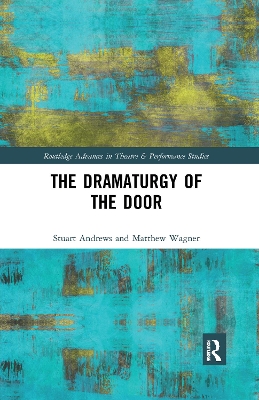Routledge Advances in Theatre & Performance Studies
2 total works
The Dramaturgy of the Door examines the door as a critical but under-explored feature of theatre and performance, asking how doors function on stage, in site-specific practice and in performances of place.
This first book-length study on the topic argues that doors engage in and help to shape broad phenomena of performance across key areas of critical enquiry in the field. Doors open up questions of theatrical space(s) and artistic encounters with place(s), design and architecture, bodies and movement, interior versus exterior, im/materiality, the relationship between the real and the imaginary, and processes of transformation. As doors separate places and practices, they also invite us to see connections and contradictions between each one and to consider the ways in which doors frame the world beyond the stage and between places of performance.
With a wide-ranging set of examples – from Shakespeare’s Macbeth to performance installations in the Mojave Desert – The Dramaturgy of the Door is aimed at performance makers and artists as well as advanced students and scholars in the fields of performance studies, cultural theory, and visual arts.
That Shakespeare thematized time thoroughly, almost obsessively, in his plays is well established: time is, among other things, a 'devourer' (Love's Labour's Lost), one who can untie knots (Twelfth Night), or, perhaps most famously, simply 'out of joint' (Hamlet). Yet most critical commentary on time and Shakespeare tends to incorporate little focus on time as an essential - if elusive - element of stage praxis. This book aims to fill that gap; Wagner's focus is specifically performative, asking after time as a stage phenomenon rather than a literary theme or poetic metaphor. His primary approach is phenomenological, as the book aims to describe how time operates on Shakespearean stages. Through philosophical, historiographical, dramaturgical, and performative perspectives, Wagner examines the ways in which theatrical activity generates a manifest presence of time, and he demonstrates Shakespeare's acute awareness and manipulation of this phenomenon. Underpinning these investigations is the argument that theatrical time, and especially Shakespearean time, is rooted in temporal conflict and 'thickness' (the heightened sense of the present moment bearing the weight of both the past and the future). Throughout the book, Wagner traces the ways in which time transcends thematic and metaphorical functions, and forms an essential part of Shakespearean stage praxis.

